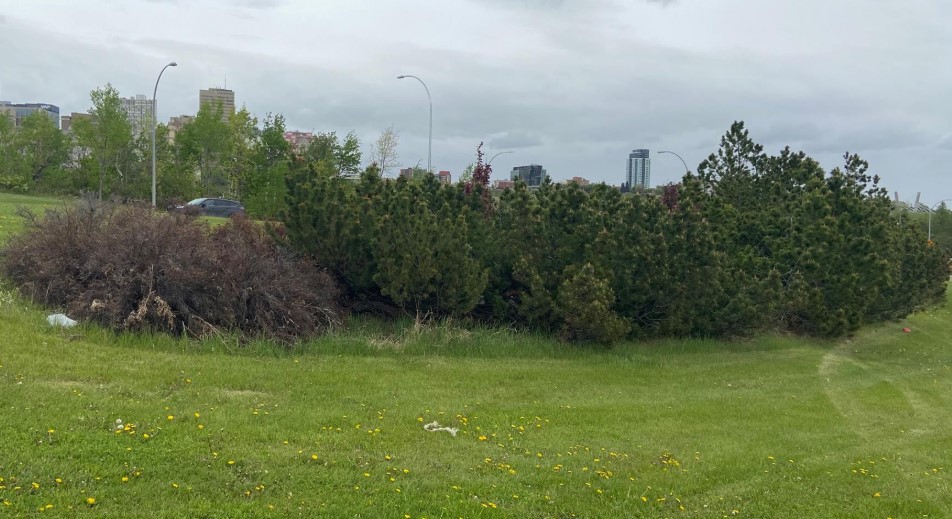Edmonton’s community and public services committee heard from a handful of very passionate speakers Friday who all opposed a cost-savings plan to reduce manual weeding across the city and replace it with increased herbicide use.

In 2020, city council tasked administration with proposing budget cuts that would allow for a zero per cent tax increase.
One of the areas mowed down was the budget for weed control; it was reduced by $1.14 million for 2021.
That meant the city did not hire 40 seasonal workers who traditionally weed and maintain dozens of hectares of shrub beds in parks, neighbourhoods and along streets.
Instead, administration proposed replacing that manpower with chemical sprays to kill invasive weeds.
“I was really distressed and appalled in reading the proposed changes in loosening current regulation regarding the city’s use of herbicides and pesticides,” concerned resident Elvira Falconer told the committee.
Falconer was one of a handful of Edmontonians who spoke against the increased herbicide use, instead calling on the city to find more environmentally-friendly solutions.
“I keep hearing, ‘Listen to the science, listen to the experts,’ in these times of COVID(-19),” she said.
“Why are we not extending this same courtesy to our environment, and do due diligence to the concerns and threats that pesticides and herbicides present to our ecological and physiological well-being.”
READ MORE: Manitoba cosmetic pesticide ban untouched since 2014, PCs stress review in progress
Other speakers brought up scientific studies and class-action lawsuits detailing how herbicides and pesticides can have detrimental impacts on people’s health.
“Pesticides kill and hang around much longer than industry tells you. Studies done in Alberta show pesticides persisting in the spring that were sprayed the previous fall,” said Sheryl McCumsey with Pesticide Free Canada.
Coun. Mike Nickel said it’s a challenging issue because he hears a lot of complaints about unsightly parks and boulevards in Edmonton.
“I’ll tell you exactly what I’m hearing from my constituents: naturalization — they are tired of it,” he said. “They are tired of the dandelions, they are very frustrated with how the city is looking.”
But this particular budget cut has no bearing on dandelions at all. It only focuses on noxious weeds, including thistles and knapweeds.
The speakers all nodded their heads as environmental activist Dr. Raquel Feroe said the city needs to work to change people’s perceptions around weeds and naturalization.
“You can tell them that we’re more concerned about your health and the environmental health,” she said.
“We’re more concerned about the climate crisis and the biodiversity crisis, and aesthetics just have to take a back seat right now, I’m sorry.”
McCumsey also questioned whether the financial savings around herbicide use would actually come to fruition, saying the chemicals could have unintended consequences.
“Does the city like being fiscally responsible? When you spray near a plant you wish to keep, you risk losing it — it’s that simple,” she said, pointing again to scientific studies showing how herbicides don’t always stick to their intended target.
Councillors Ben Henderson and Aaron Paquette questioned why administration put this particular measure forward as a cost-saving option, arguing it goes against the bigger principles the city is trying to abide by.
Nickel decided to put forward a motion to reverse the budget cut entirely, using money from the financial stabilization reserve. He received unanimous support.
“What we are getting is putting 40 temps back to work, we’re getting cleaner beds and we’re reducing our herbicides. Those are all good, positive outcomes,” he said.
The ultimate decision will be up to city council, which is on recess until the second week of June.




Comments